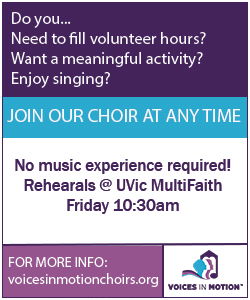The end of semester is full of paradoxes—the light at the end of the tunnel can be easily overshadowed by the remaining to-do list. Weeks seem to fly by, but an afternoon buried in books can feel like an eternity. At the end of each day, I can’t help but ask myself what I accomplished during that study session. And as the end of course work for my Masters program is weeks away, the bigger question has become, what have I actually learned?
Rather than facts, frameworks, or study results, what comes to mind is how I learn.
It is best to learn without prior expectations. To be completely frank, I had no idea that my education would have diverged this far from my expectations. In fact, some course outlines have actually left me in a slight rage, questions of relevance and utility swirling through my head. Instead of protesting—or regretting the decision to enrol in the program entirely—I have taken my learning into my own hands. It is ultimately my responsibility to meet the expectations I have for grad school. The challenge became taking the assignment that initially sounded useless and centring it on a topic I’m passionate about. Suddenly, things seem surprisingly more relevant and doable—an open mind makes room for learning.
Learn holistically. The traditional education system exercises our brain. At times, it will do so to the point of exhaustion and perhaps physical pain (I swear poorly written textbooks should come with a “may cause migraine” warning). But I have realized that learning with our hearts—becoming emotionally invested, riled up, or affected by the material—only enriches our experience. One of my professors began her first lecture by discussing the importance of embracing the uncomfortable, stating that those are the spaces in which we learn. My undergraduate degree seemed to challenge the breadth of my learning, whereas grad school has challenged the depth. With hindsight, I can say I prefer the latter.
Learning often happens far from the classroom. Over the past 15 months, I nerded out big time. I wrote abstracts for “fun” and attended conferences purely out of interest. Along with key points from speakers and workshops, I have learned that networking doesn’t have to be awkward, that posters can be made well, and that it is possible to make evening sessions more interesting (hint: wine in to-go mugs). But another place of great learning through grad school has been my kitchen floor…
I cannot count the moments when I have felt intellectually inadequate, emotionally raw, and up against the walls of academia. Physically, this resulted in minor panic attacks on the floor—the Kleenex unable to keep up with my tears—usually around exams in Stats or Epidemiology. It has taken me four semesters and four seasons to realize that my professor is completely right: in those horrendously uncomfortable places, learning happens. The deep kind.
In one of those particularly dark moments on the kitchen floor, a good friend gently said, “Sam, remember that this is all for you.” She’s right. As students, we are the only judges of our educational journey who matter.
The tears, experiences of racism, and systemic frustrations have been opportunities for growth. As I near the end, I am thankful for how they’ve made grad school a truly holistic experience. The greatest lesson I am carrying forward? Learning, in all its forms, is a gift.
Samantha Tsuruda is a second-year Masters in Public Health student at UBC. She holds a bachelor’s degree in psychology from UVic, from which she graduated in 2010.







